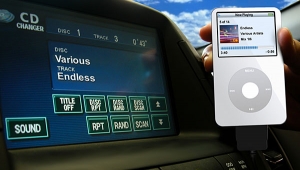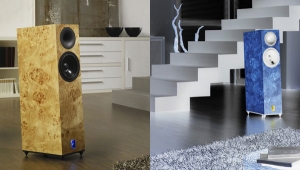| Columns Retired Columns & Blogs |
Most of the sound of a component or system is apparent within the first few seconds. It takes a few weeks for me to assess the real character, and I think that's because I need to hear the system under different conditions: setup, time of day, mood, humidity, moon phase (not), etc. I also am aware that my attention and actual aural acuity varies from day to day, affecting my perception. So I try to gain a "true" picture by averaging my perceptions over time in a decidedly unscientific manner. But I don't listen to too much new equipment, having escaped the vicious circle of upgrades a few years ago. So, not only is my method unscientific, it's not even practiced. Never mind. See you at the Show.


























